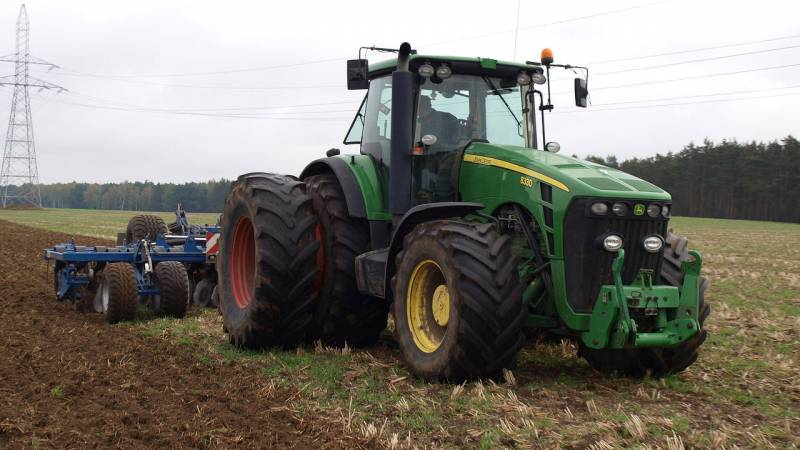Shortages of tractors and crucial farm mechanisation implements have affected the country as field preparation for dry and wet season crop in 2022 begins across agro-ecological zones.
Biodun Olugbami, Secretary of the Agricultural Equipment Hiring Operators Association, stated that data fluctuate. However, the frequently repeated assertion is that Nigeria has only 7,000 – 10,000 working tractors, with approximately 55,000 tractors believed to be dysfunctional or broken down.
In terms of the ideal number of tractors for ensuring farm mechanisation and food security in the country, he stated that the global average of tractors per 100km2 is 200.
100km2 equals 10,000 hectares, which equates to one tractor every 50 hectares in an ideal circumstance. In Africa, there are around 13 tractors for every 10,000 hectares. In Nigeria, though, the situation is far worse, with seven tractors for every 10,000 hectares of land.
This came as the African Union Commission's Commissioner for Rural Economy and Agriculture, Josefa Leonel Correia Sacko, and the Food and Agricultural Organization's (FAO) Sub-Regional Coordinator for Eastern Africa and Representative to the African Union and the United Nations Economic Commission for Africa, Dr Chimimba David Phiri, stated in a report that only sustainable agricultural mechanisation can save Africa from perpetual food insecurity.
According to them, "agricultural mechanisation in Africa is an urgent matter and an indispensable pillar for achieving the Zero Hunger vision by 2025, as stated in the Malabo Declaration of 2014, Goal 2 of the Sustainable Development Goals, and the Prosperous Africa We Want, as indicated in Agenda 2063."
The professionals also warned that doubling food production and eliminating hunger and malnutrition in Africa by 2025 would be a mirage unless mechanisation is employed in farming.
They suggested that "increasing access to mechanisation services, improving access to quality and inexpensive inputs, such as seed and fertilizer, and implementing efficient water resource management systems, including irrigation" are critical to alleviating poverty and lowering hunger.




